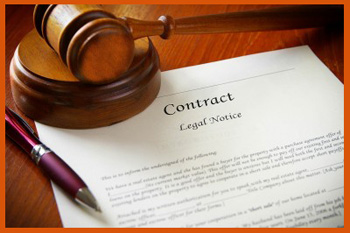What is a Legal Document ?
 We encounter legal documents, contracts and written agreements everyday. Most people recognize some of the obvious legal documents like a Last Will and Testament, or a lease agreement, or an agreement to purchase a home. But what about cell phone contracts, contracts to purchase a vehicle, loan contracts, etc. These are all legal documents. In short a legal document is any written instrument that defines, declares, limits, or expands the legal rights or privileges of a person or entity. For example a Last Will and Testament is a written instrument in which you declare that the person or persons that you designate are entitled to receive certain property upon your death. We encounter legal documents, contracts and written agreements everyday. Most people recognize some of the obvious legal documents like a Last Will and Testament, or a lease agreement, or an agreement to purchase a home. But what about cell phone contracts, contracts to purchase a vehicle, loan contracts, etc. These are all legal documents. In short a legal document is any written instrument that defines, declares, limits, or expands the legal rights or privileges of a person or entity. For example a Last Will and Testament is a written instrument in which you declare that the person or persons that you designate are entitled to receive certain property upon your death.
Legal documents often times come from the court or other government agency and defines legal rights, privileges or duties of the persons named in the instrument. Courts issue orders that require or prohibit certain actions, and limit or expand legal rights, privileges, define the rights of ownership, benefits, etc. Courts issue orders, writs – which is a declarative order like a Writ of Possession in an eviction case which declares that the landlord is entitled to possession of the property. Courts also issue warrants like arrest warrants or search warrants. Government agencies also issue legal documents like licenses, etc which declare a person’s legal right or privilege to engage in certain activities – like a driver’s license, a license to practice law, or medicine, etc.
Contracts and Written Agreements
Contacts and written agreements are legal documents which not only define the legal rights or privileges of the parties involved, but also delineates the duties and obligations of the parties. Contracts and written agreements are binding documents which when properly drawn and signed become enforceable as a matter of law. For instance, a sales contract or purchase agreement – you agree to purchase the property and the other party agrees to sale the property. Both the buyer and seller have certain rights, and duties under the contract. A  properly written contract will define what constitutes a breach of the contract, as well as the remedies for such a breach – like repossession of the property in the event of non-payment. Sometimes contracts contain clauses – sections – that define the venue for court actions, or require that the parties go to binding arbitration in order to resolve a dispute over the contract terms. properly written contract will define what constitutes a breach of the contract, as well as the remedies for such a breach – like repossession of the property in the event of non-payment. Sometimes contracts contain clauses – sections – that define the venue for court actions, or require that the parties go to binding arbitration in order to resolve a dispute over the contract terms.
Contracts are Binding on the Parties
The most important thing to remember about a contract is that it is binding upon both parties and will usually be enforced by a court of law. In fact, in a lawsuit over a contract, the contract itself becomes the law of the case, and will be strictly interpreted by the court with the intent to enforce the contract terms and provisions. There are some narrow exceptions to the enforceability of a contract which should be explained by a lawyer. |